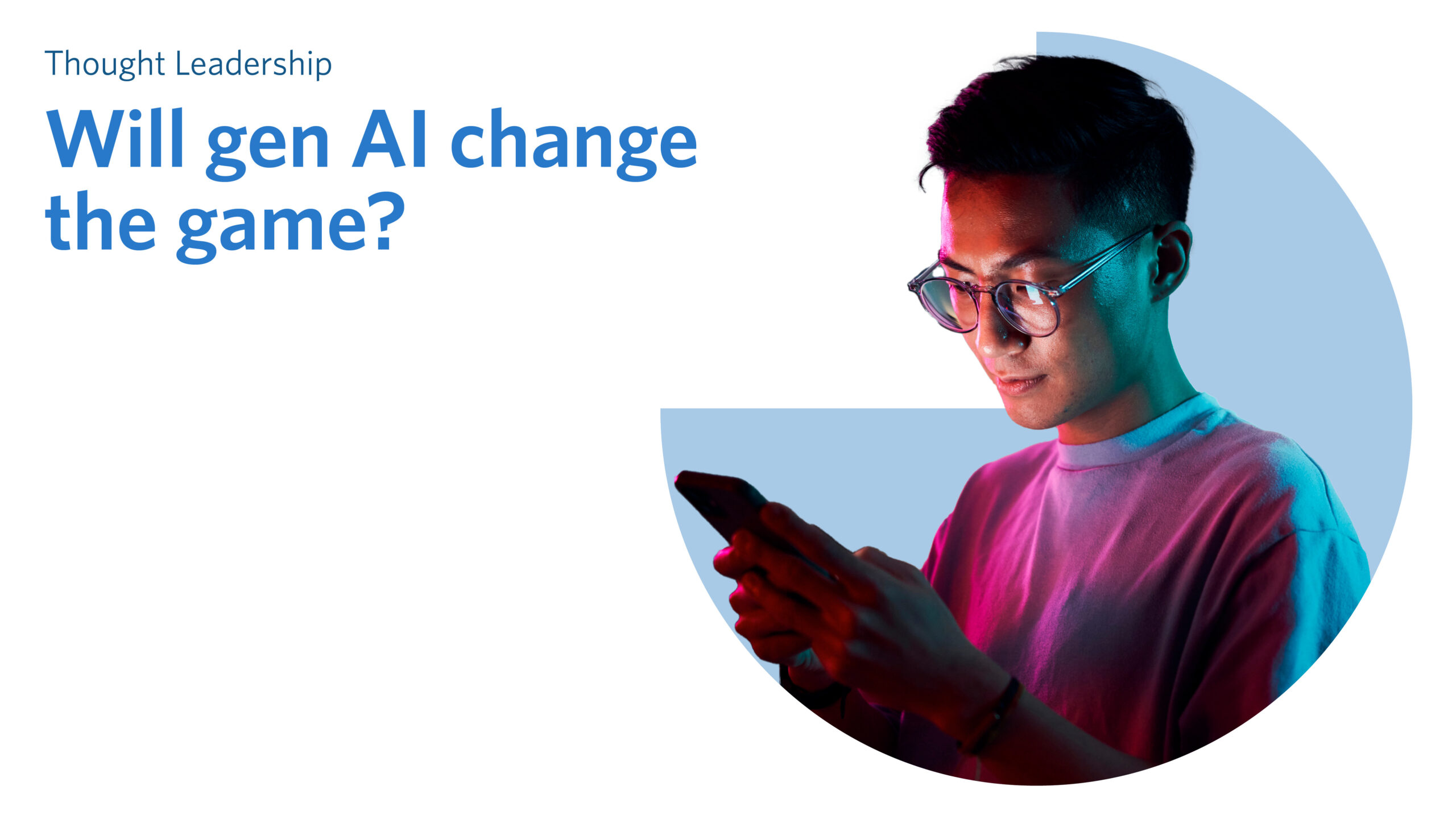Will gen AI change the game? Understanding the hopes, fears and ambitions of communications and marketing decision-makers

It’s almost a year since generative AI exploded into our newsfeeds and onto the agendas of organisations from all sectors. Since then, we’ve been told that these tools could affect up to 300 million jobs, and even that AI technology could one day pose an existential threat to humanity.
The news cycle is moving so quickly and keeps throwing up compelling new developments – earlier this month, for example, the BBC said it was looking to prevent Open AI, the producer of ChatGPT, from accessing its websites. Given this context, it’s difficult to know where we stand today with the technology, let alone what it might mean for the future.
As communications professionals, we feel this uncertainty more than most. Our work is creative. We develop and shape messages and ideas. So it’s natural to feel threatened by any notion that this can be done faster by a machine.
Generative AI also adds a whole new dimension to managing brand reputation and widens the threat landscape, meaning we cannot risk being outpaced by the technology and confronted with a reputational situation we simply don’t understand.
The truth is that generative AI is here to stay, which is why at FleishmanHillard we’ve looked to understand generative AI and begin to explore how it can support our work – especially when it comes to how we can provide the best consultancy to our clients on this rapidly developing area.
That’s why we thought it was a great opportunity to understand how the marcoms world has started reacting to the generative AI revolution – how marcoms professionals feel about it, how they and their teams are using it, and how the businesses they work for are building regulatory and training policies to meet the needs of this changing landscape.
I would encourage you to delve into our new report – Will gen AI change the game? Understanding the hopes, fears and ambitions of communications and marketing decision-makers – and read the findings for yourself. But a few key stats stood out to me from our survey of marcoms professionals at leading UK companies in the automotive, energy, financial services, FMC, healthcare, manufacturing and technology industries:
- 86% say they know “a lot” or “something” about generative AI. It’s encouraging that our profession is looking to get to grips with the technology and not bury its collective head in the sand
- 67% of respondents’ employers have no training materials in place and 65% have no policies or guidelines for generative AI. This is a huge gap and one we would hope will look very different this time next year
- 63% plan to hire AI- or data-specific roles to support their departments, indicating that generative AI’s impact on jobs may not be as clear cut as much of this year’s media narrative will have you believe.
Communications is at the very beginning of this generative AI journey and it’s best not to trust anyone who says they can tell you what our profession will look like two, five or 10 years from now.
We’ve adapted over the decades as technology has transformed the tools and channels we use to do our jobs. The early signs from FleishmanHillard’s report are that we have the mindset to do it all over again.
Download here
James de Mellow, Director, Technology practice, FleishmanHillard UK
Disclaimer: This communication is offered as general background and insight as of the date of publication, but is not intended to be and should not be taken as legal advice. Each organisation should confer with its own legal counsel and its own business and strategic advisors for guidance that is specific to and considers the organisation’s status, structure, needs and strategies.
Find Out More
-
Platinum CMS Award
March 13, 2024
-
Changing Communications Tack at Mobile World Congress
February 21, 2024


